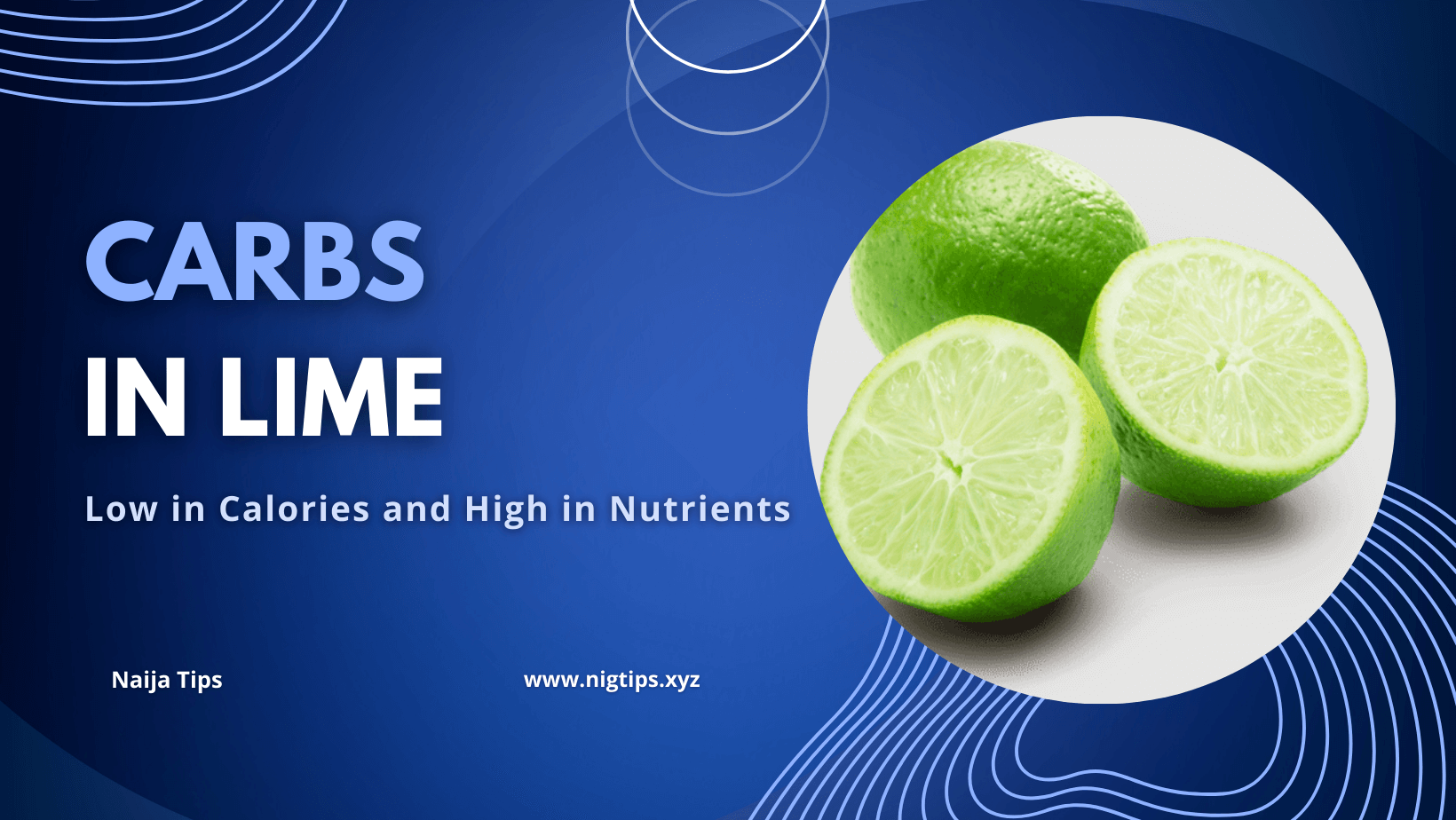Limes are low-cal and packed with various vitamins. A mainstay in tropical cuisine, they pair beautifully with mango, pineapple and coconut flavours.
Limes make an ideal addition to salads and cocktails, and are frequently included in Mexican dishes or salsas.
Limes are an excellent source of Vitamin C; one medium-sized lime contains 22% of your recommended daily allowance for this nutrient.
Low in Calories
Limes are an excellent addition to a healthy diet, offering both low calories and nutritional benefits. An average medium-sized lime contains only 20 calories and small amounts of carbohydrates while providing plenty of vitamin C and essential minerals like folate. Try using limes to liven up water or seltzer, add zesty flavor to salads, marinates for meat or vegetables and prevent fruits from browning when exposed to air.
Medium limes boast an exceptional low glycemic index value (GI index value = 0.22), making them a fantastic choice for low-carb diets. Furthermore, these fruits provide vitamins A, K, E and B6. Their nutritional composition includes 2% fats (13% carbohydrates and 10% protein); monounsaturates and polyunsatures comprise most of its dietary fat content while no cholesterol exists within.
Read: Pineapple Juice Calories.
Limes are an invaluable addition to a wide variety of beverages, such as cocktails and smoothies, as garnishes or toppings. Furthermore, they make for delicious meal- and dessert-related garnishes and toppings! Incorporating limes into a healthy diet may also help protect against chronic diseases as well as signs of aging; additionally they improve cardiovascular health while decreasing blood pressure!
High in Nutrients
Limes are bright green citrus fruits that add zest to drinks, sauces, and salads. Packed with vitamin C and antioxidants that may boost immunity, lower heart disease risk, prevent kidney stones from forming, facilitate iron absorption, promote healthy skin growth, aid iron absorption processes and more, they're an excellent source of potassium, folic acid, magnesium as well.
They're a low-calorie food and versatile to boot; perfect for snacks on their own or added into other recipes as flavor enhancers. Squeezing some lime juice into water or tea for an enjoyable beverage. Or use it as part of an intriguing salad dressing recipe, or make some delicious grilled lime chicken! Make sure that before using peels as they could contain bacteria.
Lime and lime juice both possess a low glycemic index rating, meaning they won't quickly increase blood sugar levels. Furthermore, these citrus products contain small amounts of dietary fiber to reduce cholesterol and blood pressure levels.
Tracking carb intake is crucial to those following a ketogenic diet or managing conditions like diabetes. Knowing your daily carb limit enables you to plan meals to meet it and prevent unwanted weight gain. A variety of food is needed for a well-rounded diet; take note of what nutrients each food provides!
Low in Carbs
Carbs are essential nutrients that provide our bodies with energy, found in foods like fruit, grains, vegetables and dairy products. Not all carbohydrates are equal though: some are high in sugar and could trigger spikes in blood sugar levels that lead to weight gain and insulin resistance if eaten too frequently; to prevent this from happening it's essential to track carb intake; thankfully limes are an ideal low carb choice when following a ketogenic diet!
A medium-sized lime contains about 5 grams of carbohydrates, such as natural sugars and dietary fiber, with 3 grams net carbs making limes keto-friendly snacks or ingredients. Furthermore, limes contain essential vitamins and minerals for any healthy diet plan.
Vitamin C found in limes helps the body absorb iron, helping prevent anemia and other health conditions. Furthermore, their anti-inflammatory properties may reduce cardiac stress and help ease stress-related cardiovascular ailments. Finally, limes contain plenty of antioxidants which may protect against free radicals linked to cancer development.
Safe for Kidney Problems
Limes are an excellent source of vitamin C, an essential nutrient to fight heart disease, asthma and other chronic illnesses. Limes also provide antioxidants which can slow the aging process while being low-calorie food sources with protein and potassium - especially important if you suffer from kidney disease as too much potassium can be harmful. To lower risk of potassium overload and prevent potential problems with hydration levels and kidney function. Aim to eat variety in fruits and vegetables for best results!
Limes boast a low glycemic index index rating, making them suitable for those following a low-carb diet. One medium-sized lime contains only 11 calories and 3.7 grams of carbohydrates; additionally it's low in sodium content which may aid those suffering with kidney problems; finally it contains only 2% fat - making it an ideal addition to a low-fat diet plan.
Lime carbs come from natural sugars and thus contain relatively few net carbohydrates. A medium-sized lime contains only 5.2 grams of net carbohydrates - not enough to put you into ketosis! Most people do not consume whole limes but instead take advantage of juice or zest as an alternative source.
Lime is an immensely versatile ingredient, used in both marinades and barbecue sauces, or made into refreshing beverages such as fresh limeade. Furthermore, lime is great addition to green drinks! Additionally, lime is often featured as part of recipes like grilled lime chicken with garlic-olive oil marinade or marinated salmon dish.



Post a Comment
0Comments